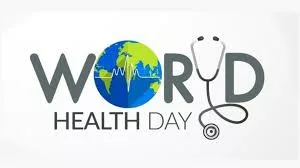As the world commemorates World Health Day, it’s imperative to reflect on Nigeria’s health landscape, acknowledging both the progress made and the persistent challenges that continue to hinder the nation’s healthcare system. This year’s theme: “Health for All: Protecting Everyone, Everywhere,” resonates deeply in Nigeria, where access to quality healthcare remains a pressing concern for millions of citizens.
Nigeria, Africa’s most populous nation, grapples with a myriad of health challenges, ranging from infectious diseases to non-communicable ailments and inadequate healthcare infrastructure. The COVID-19 pandemic further exposed the vulnerabilities of Nigeria’s healthcare system, highlighting gaps in preparedness, response capacity, and equitable access to healthcare services.
Infectious diseases such as malaria, tuberculosis, and HIV/AIDS continue to pose significant threats to public health in Nigeria. Despite commendable efforts to combat these diseases, including widespread vaccination campaigns and public health initiatives, the burden of infectious diseases persists, disproportionately affecting vulnerable populations and underserved communities.
Additionally, non-communicable diseases (NCDs) such as diabetes, cardiovascular diseases, and cancer are on the rise in Nigeria, fueled by factors such as urbanisation, unhealthy lifestyles, and inadequate preventive healthcare measures.The prevalence of NCDs underscores the urgent need for comprehensive strategies to promote healthy living, early detection, and access to affordable treatment options.
Moreover, Nigeria grapples with a shortage of healthcare infrastructure, including hospitals, clinics, and medical personnel, particularly in rural and remote areas. The uneven distribution of healthcare facilities exacerbates disparities in access to healthcare services, leaving millions of Nigerians without essential medical care. Addressing this infrastructure deficit requires substantial investments in healthcare infrastructure, workforce training, and capacity-building initiatives.
Despite these challenges, Nigeria also possesses significant opportunities to enhance its healthcare system and improve health outcomes for its citizens. The country’s youthful population presents a demographic dividend that, if harnessed effectively, can drive innovation, economic growth, and sustainable development in the healthcare sector.
Furthermore, ongoing reforms and initiatives aimed at strengthening Nigeria’s healthcare system, such as the National Health Act and the Basic Healthcare Provision Fund (BHCPF), hold promise for expanding access to essential healthcare services and improving health equity across the country. These initiatives, coupled with increased domestic and international investment in healthcare, have the potential to catalyse positive change and transform Nigeria’s health landscape.
On this World Health Day, let us reaffirm our commitment to prioritising health for all Nigerians, regardless of their socio-economic status or geographic location. Policymakers, healthcare professionals, civil society organisations, and the private sector must collaborate effectively to address the systemic challenges facing Nigeria’s healthcare system and ensure that every Nigerian has access to quality healthcare services when needed.
World Health Day serves as a poignant reminder of the urgent need to prioritise health as a fundamental human right and invest in building resilient, inclusive, and sustainable healthcare systems. By working together and embracing a holistic approach to health, Nigeria can overcome its health challenges and build a healthier, more prosperous future for all its citizens.





